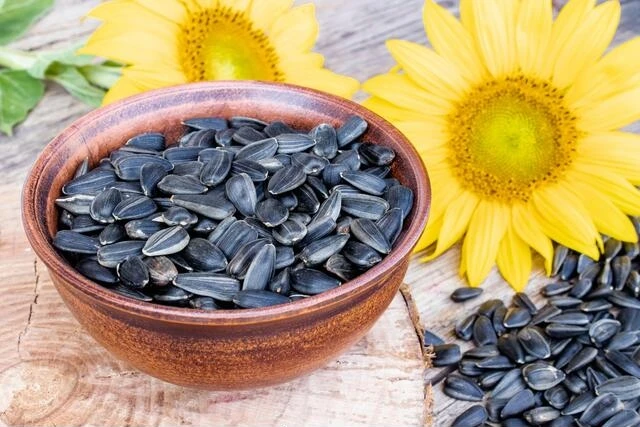
Sunflower seeds, harvested from the vibrant sunflower, are not just a snack but a nutritional goldmine. These small seeds have been enjoyed for centuries, both as a dietary staple and a cultural symbol in many parts of the world. From ancient civilizations to modern health enthusiasts, sunflower seeds have maintained their reputation as a powerhouse of nutrients.
From Historical Staple to Nutritional Powerhouse
Sunflower seeds, once cherished in ancient cultures for their rich nutrition and versatility, have become a popular choice in modern health-conscious diets. Historically valued for both dietary and symbolic reasons, they continue to be recognized today for their exceptional nutrient profile and health benefits.
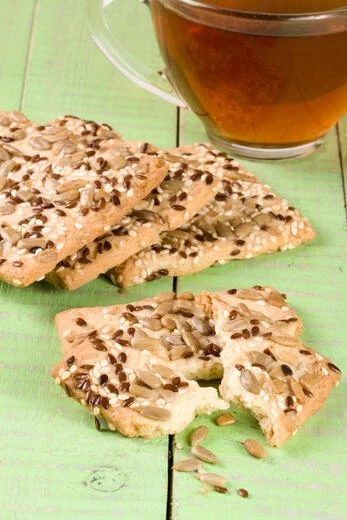
In the realm of modern health and wellness, sunflower seeds shine brightly for their exceptional nutrition value. Packed with essential vitamins, minerals, and healthy fats, these seeds are a versatile addition to any diet, enhancing everything from salads and smoothies to snacks and baked goods. To truly benefit, experience how the nutrition value of sunflower seeds from Kohlu can elevate your daily routine.
Nutrition Facts for Sunflower Seeds
Nutrition Facts for Sunflower seeds per 1 tablespoon :
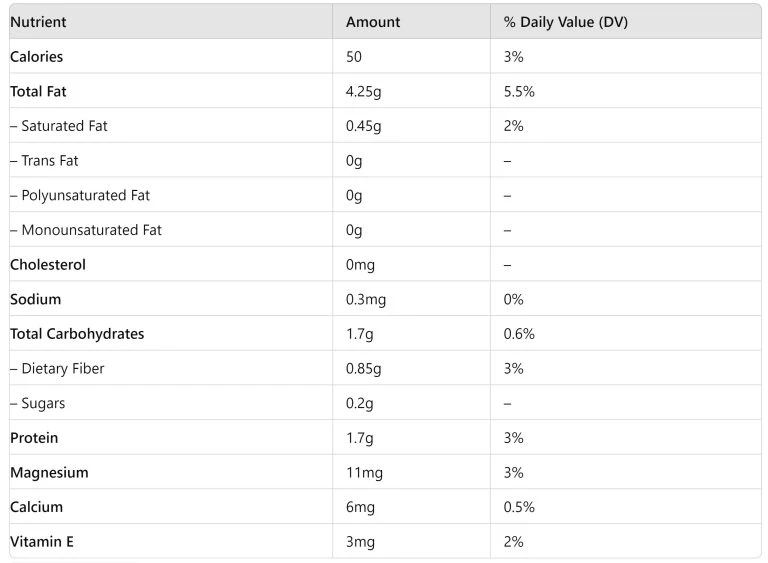
Macronutrients and Micronutrients
Sunflower seeds offer about 6 grams of plant-based protein per ounce, supporting muscle repair and growth. They contain 7 grams of carbohydrates, mostly from dietary fiber, which aids digestion and stabilizes blood sugar. Rich in Vitamin E, these seeds act as antioxidants and are also high in B vitamins (B6 and folate) for energy and cognitive function. Additionally, they provide essential minerals: magnesium for muscle and nerve health, phosphorus for bone health, and selenium for antioxidant protection.
Impact on Health
Enhancing Mood and Mental Health
Sunflower seeds contain B vitamins, particularly vitamin B6, which play a crucial role in brain health and mood regulation. These vitamins support neurotransmitter function, potentially improving mood and reducing symptoms of depression. The magnesium content also helps manage stress and anxiety levels.

Improving Digestive Health
Packed with dietary fiber, sunflower seeds aid in maintaining a healthy digestive system. The fiber content helps regulate bowel movements and prevents constipation. Additionally, it supports a balanced gut microbiome, contributing to overall digestive well-being.
Boosting Immune Function
Sunflower seeds are a rich source of selenium, an essential mineral that supports immune system function. Regular consumption can enhance your body’s ability to fend off infections and illnesses. Selenium also has antioxidant properties, helping to reduce oxidative stress and inflammation.
Can you eat sunflower seeds without peeling?
Yes, you can eat sunflower seeds without peeling them. The shells of sunflower seeds are edible, but they can be tough and may be hard to digest for some people. Most commonly, sunflower seeds are consumed without the shells removed, especially in their roasted or raw forms. However, if you prefer a smoother texture or find the shells difficult to chew, you might choose to eat shelled sunflower seeds instead. Shelled sunflower seeds are also more convenient for snacking and can be easily added to various dishes.
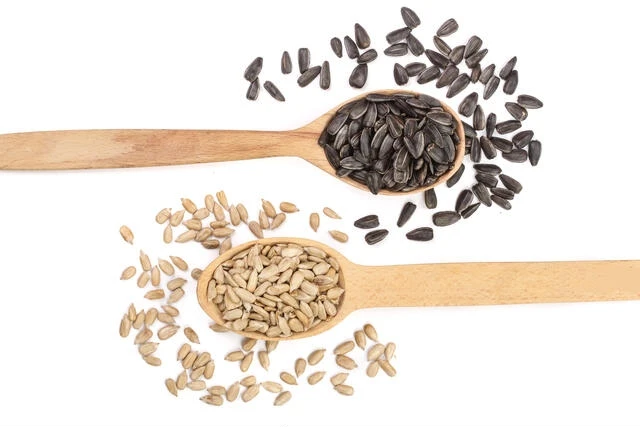
Which is Better: Pumpkin or Sunflower?
Here\'s a comparison to help you decide between pumpkin seeds and sunflower seeds. Both offer unique nutritional benefits, so choosing the best one depends on your specific health goals and taste preferences.

Selecting the Best Sunflower Seeds
When selecting sunflower seeds, prioritize those that are fresh and free from signs of spoilage. Organic seeds are often a better choice as they are grown without synthetic pesticides and offer a healthier option compared to conventional seeds, which may contain pesticide residues. For sunflower seeds that elevate your snacking experience, turn to Kohlu. Our exceptional range of organic seeds guarantees unparalleled freshness and superior nutritional benefits, making each bite truly extraordinary.
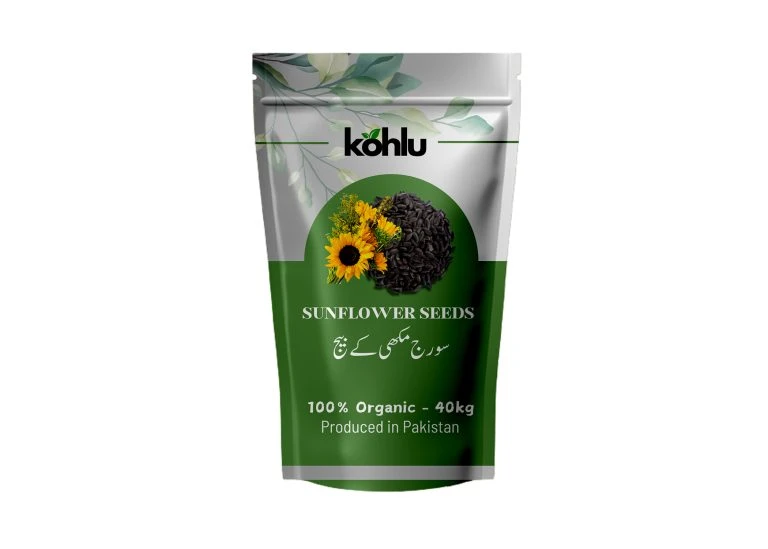
Storage Tips for Maximum Freshness
To keep sunflower seeds fresh and extend their shelf life, store them in an airtight container in a cool, dark place. For optimal freshness, consider refrigerating them, which helps prolong their shelf life. For long-term storage, freezing sunflower seeds is an excellent option, as it preserves their quality and nutritional value for several months.
Conclusion
Sunflower seeds are a nutritional powerhouse, providing a wealth of health benefits from boosting immune function and supporting digestive health to enhancing mood and mental well-being. Whether enjoyed raw or roasted, they offer versatile ways to enrich your diet with essential nutrients. Choosing high-quality seeds, such as those from Kohlu, ensures you’re getting the best in taste and nutrition. By incorporating sunflower seeds into a balanced diet and proper storage practices, you can enjoy their full range of benefits and maintain their freshness.
FAQs
Q1: How can sunflower seeds benefit cardiovascular health?
Sunflower seeds are high in healthy fats and magnesium, which can help lower blood pressure and reduce the risk of heart disease. Their nutrient profile supports overall cardiovascular health when consumed regularly.
Q2: Do sunflower seeds burn belly fat?
Sunflower seeds alone won\'t specifically target belly fat, but their healthy fats and fiber can support overall weight management when included in a balanced diet. Combined with exercise, they can contribute to a healthier body composition.
Q3: Are sunflower seeds good for skin health?
Yes, sunflower seeds are rich in Vitamin E and essential fatty acids, which promote skin elasticity, hydration, and overall skin health. These nutrients help maintain a youthful appearance and combat oxidative stress.
Q4: What is the best way to incorporate sunflower seeds into my diet?
Sunflower seeds can be added to salads, smoothies, yogurt, or eaten as a standalone snack. They can also be used as a crunchy topping for various dishes, enhancing both flavor and nutritional value.
Q5: Can sunflower seeds improve bone health?
Sunflower seeds contain magnesium and phosphorus, essential minerals for maintaining bone density and reducing the risk of osteoporosis. Regular consumption supports overall bone strength and health.

